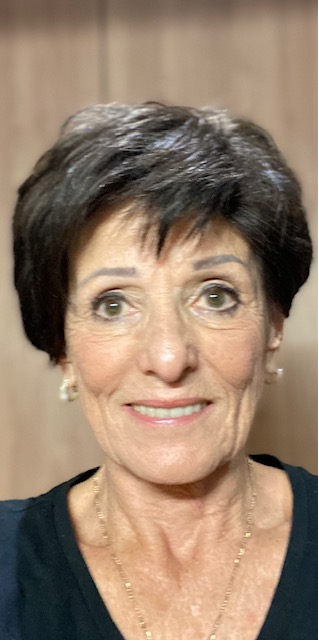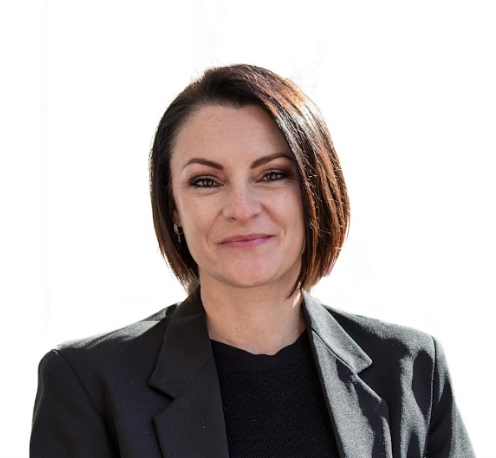Guest Post: Envisioning a Nurturing Ecosystem in Which ECCE Can Thrive
Posted 2nd October 2025
Any views expressed in this post are those of the author(s) and do not necessarily reflect the official stance of their affiliated institution or EECERA.
Planting Seeds of Resilience in South Africa’s ECCE through Local Hubs and Collaboration*
By Sandra Bruwer, Lesley Wood and Benita Taylor- North-West University, South Africa

Resilience in the face of adversity (generated with AI).
Cultivating Resilience: How Local Hubs Can Transform South Africa’s ECCE Landscape
South Africa’s early childhood care and education (ECCE) sector stands at a critical crossroads. Despite progressive policy frameworks and a growing recognition of the importance of early learning, the sector remains fragmented, under-resourced, and vulnerable—especially in disadvantaged communities. In this article we argue for the importance of local ECCE hubs. These hubs, we propose, can serve as fertile ground for nurturing resilience, equity, and sustainable growth.
The ECCE Landscape: A Seedling in Harsh Soil
We liken South Africa’s ECCE sector to a fragile seedling struggling to grow in barren soil. Despite the Department of Basic Education (DBE) taking over ECCE responsibilities in 2022, the sector continues to face systemic challenges. Only 40% of ECCE centres are registered, and many operate informally without access to government subsidies or support. This leaves millions of children—particularly those in low-income areas—without access to quality early learning opportunities.
Practitioners, often underpaid and underqualified, work in difficult conditions with limited professional development pathways. The vocational classification of ECCE qualifications further marginalises these educators, excluding them from professional recognition and benefits. Without systemic reform and grassroots support, the sector risks further deterioration.
Local Hubs: Oases of Hope
To address these challenges, we propose the creation of local ECCE hubs—collaborative spaces where stakeholders can share resources, receive training, and engage in advocacy. These hubs would bring together civil society, parents, local government, centre managers, and practitioners to co-create solutions tailored to their communities.
Such hubs could offer professional development, support compliance with regulatory standards, and foster a sense of belonging and purpose among ECCE practitioners. By decentralising support and empowering local actors, these hubs could help bridge the gap between policy and practice, ensuring that national goals are realised at the community level.
Collaboration as the Root System
Central to this vision is the idea of stakeholder synergy. We argue that ECCE cannot thrive in isolation. Instead, it requires coordinated efforts across health, education, social protection, and economic development sectors. Unfortunately, collaboration at the grassroots level remains limited, with stakeholders often working in silos or competing for resources.
The proposed hubs would facilitate intersectoral collaboration, enabling practitioners, parents, NGOs, and government officials to work together toward shared goals. This approach not only improves service delivery but also enhances workplace well-being, professional growth, and community engagement.

Envisioning a nurturing ecosystem in which ECCE can thrive (generated with AI).
Theoretical Foundations: CAL and Systems Theory
To cultivate these hubs, we draw on Critical Action Learning (CAL) and Systems Theory. CAL encourages stakeholders to engage in reflective dialogue, challenge assumptions, and co-create solutions through participatory action learning and research. It promotes ethical engagement, respect for participants, and a commitment to social justice.
Systems Theory emphasises the interconnectedness of various systems—micro (individuals), meso (communities), macro (policy), and chronosystem (historical context). By understanding these relationships, stakeholders can design resilient ecosystems that adapt to changing conditions and support sustainable ECCE practices. Together, these frameworks provide a roadmap for building inclusive, equitable, and responsive ECCE hubs that reflect the diverse needs of South African communities.
A Call to Action
The article is more than a theoretical exploration—it’s a call to action. We urge all ECCE stakeholders to embrace collective action and invest in local collaboration. Transformation is not solely the responsibility of government but requires active participation from families, communities, and practitioners.
The DBE’s proposed Social Compact model, which envisions partnerships between government, social partners, businesses, donors, and the ECCE workforce, aligns with this vision. However, for such a model to succeed, it must be grounded in local realities and supported by strong community-based structures—like the ECCE hubs proposed in this study.
Looking Ahead
This article is the first in a series of four that form part of a broader PhD study. Future articles will delve deeper into the practical implementation of ECCE hubs, exploring their structure, stakeholder roles, and sustainability. The ultimate goal is to develop a comprehensive framework that guides the establishment of these hubs across South Africa.
In the meantime, the message is clear: if we want ECCE to flourish, we must cultivate the soil in which it grows. That means investing in relationships, empowering practitioners, and creating spaces for collaboration and learning. Only then can we transform the ECCE sector into a thriving ecosystem that nurtures every child’s potential.
*This post is based on the following published EECERJ article:
Bruwer, S., Wood, L. and Taylor, B. (2025) ‘Planting seeds of resilience in South Africa’s ECCE through local hubs and collaboration’, European Early Childhood Education Research Journal, pp. 1–14. https://doi.org/10.1080/1350293X.2025.2551020.
About the authors:

Sandra Bruwer is a lecturer and researcher in Early Childhood Care and Education (ECCE) and Foundation Phase teaching at North-West University, South Africa. She lectures undergraduate and postgraduate students through both contact and distance modes of delivery. She holds a Master’s degree in Education and is currently advancing her research on sustainable ECCE systems, collaborative community hubs and participatory action learning. Her work examines the role of partnerships between higher education institutions, practitioners, and local communities in enhancing early learning environments, refining professional practice and promoting educational equity. A commitment to sustainable development, inclusivity and capacity building within the ECCE sector guides her teaching and research. Passionate about empowering practitioners, she collaborates with stakeholders to create spaces where knowledge and skills can be shared for long-term impact.

Lesley Wood is an extraordinary professor and ETDP SETA Research Chair for ECD in the Faculty of Education at North-West University, South Africa. Lesley is committed to helping educational stakeholders address the social disadvantages they face within contexts of poverty. She is a National Research Foundation rated researcher whose interests lie in researching participatory ways to facilitate psycho-social wellness within various educational communities. She has been inducted into the Academy of Science South Africa (ASSAf) and the international Academy of Community Engaged Scholarship (ACES). Over 40 postgraduate students have received their degrees under her supervision. She has published over 100 articles, chapters and books, and received several national and international grants for her projects.

Benita Taylor is a lecturer and researcher in Early Childhood Development (ECD) at North-West University in South Africa. She teaches both contact and distance students at undergraduate and postgraduate levels. She holds a PhD in Special Needs Education, specialising in ECCE (0–4 year development), community engagement to drive sustainable transformation in education. Her work centres on building strong partnerships between higher education and ECD (0-9 years) communities. Through various community projects, Benita collaborates with ECD teachers and practitioners to enhance early learning environments across South Africa, strengthen professional capacity, and advance inclusive education. She mentors practitioners furthering their qualifications and involves postgraduate students in these initiatives, fostering shared learning and long-term impact. Passionate about community upliftment, she serves as liaison for initiatives that unite practitioners, academics, and stakeholders to exchange knowledge, share skills, and strengthen the ECD sector.
